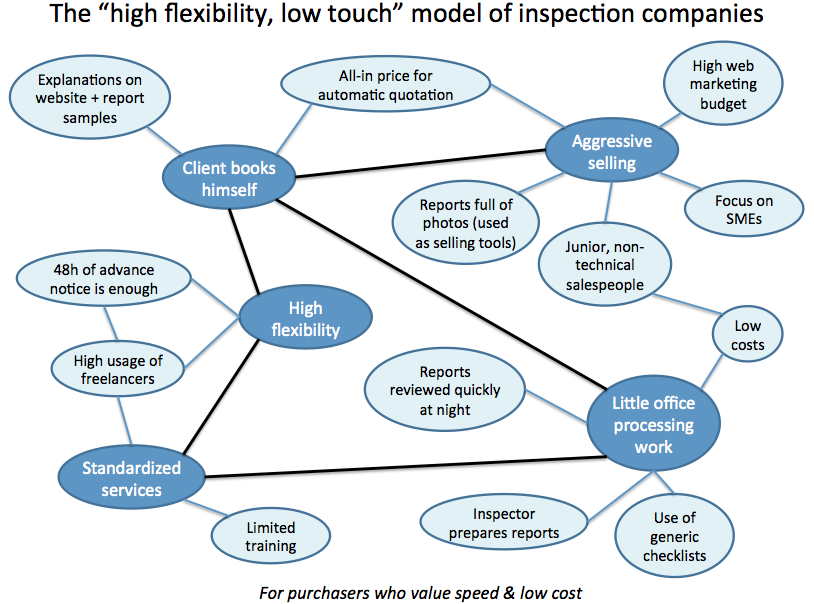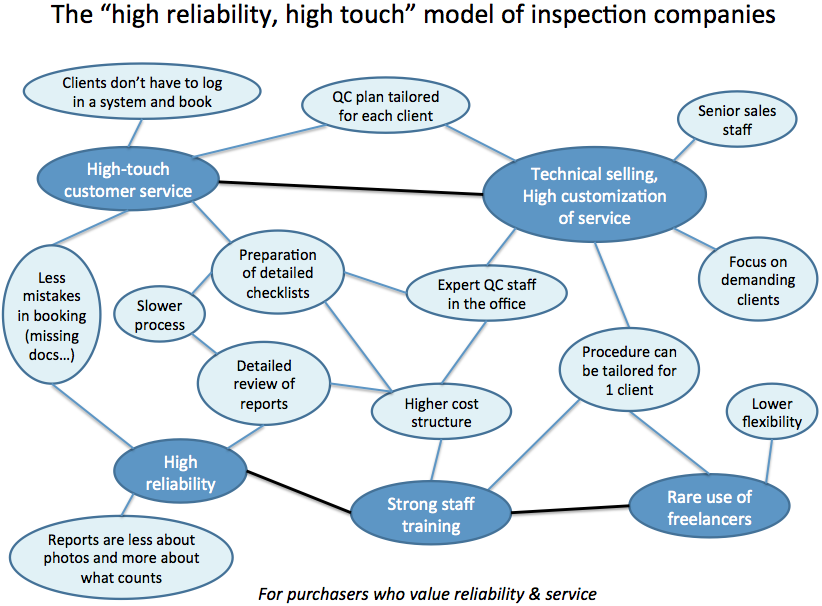
Let’s say you are an importer, looking for a provider of QC inspection services in China. You will evaluate candidates on how serious they look, on their size, and maybe on their knowledge of your product line, right?
Well, you’ll be missing one important question: are they focused on flexibility or on reliability? Inspection firms be both very flexible and very reliable.
I distinguish two types of companies in the industry.
Note: I excluded the largest companies from this analysis, because they are more focused on serving big retailers, and they make most of their money from laboratory tests.
Type A: the “high flexibility, low touch” agency
This model appeared less than ten years ago, but its pioneer has grown extremely fast and has inspired a series of copycats. They are very present on the internet, so you will find them easily via a Google search.
This is a suitable offer for purchasers who:
- Need to be able to book an inspection for the day after tomorrow (and who can’t tolerate a response such as “sorry, all our inspectors are already assigned to jobs, can we do this in 3 days?).
- Work on simple consumer goods, and are happy to get reports with many photos and little text.
- Want to know the inspection cost in advance, in a predictable way.
- Don’t mind booking the inspections by themselves, every time.
This is what I call hands-off buyers. They tend to deal with many product categories and many suppliers. Shipments should never be delayed. They use quality control as damage control — they only check the goods to avoid disasters.
Type B: the “high reliability, high touch” agency
In contrast, some QC agencies follow a very different model.
This is a very good offer for purchasers who:
- Value quality over speed, and who are willing to pay, or to wait, a little more just to be sure that they will receive exactly what they have ordered.
- Work on complex products, or have special requests. They want to work hand in hand with a technician who will come up with a suitable solution.
- Want to work with a partner company (who takes over certain activities in their organization) over the long term. This is not a one-shot deal.
This is what I call hands-on buyers: they tend to work with fewer manufacturers, they often deal with one product category only, and they sell in a channel that won’t accept quality problems.
How to spot whether an inspection firm is type A or type B?
Nobody admits to favor flexibility at the expense of reliability, of course. Everyone claims to employ the most qualified inspectors. It is amazing how a sleek website and a confident sales force can distort a potential client’s perception.
However, since type-A and type-B companies target different importers, their sales pitches focus on different arguments:
- Type A (high flexibility, low touch) firms boast an online booking system, how fast they are, and an all-inclusive price.
- Type B (high reliability, high touch) firms mention their outstanding service and offer a wide range of solutions. They don’t show a price on their website.
All right, now you are warned… You wouldn’t use a Ferrari to go off-road, or a Land Rover for extended highway travel. Don’t make these mistakes when you pick a QC firm.

No comments:
Post a Comment